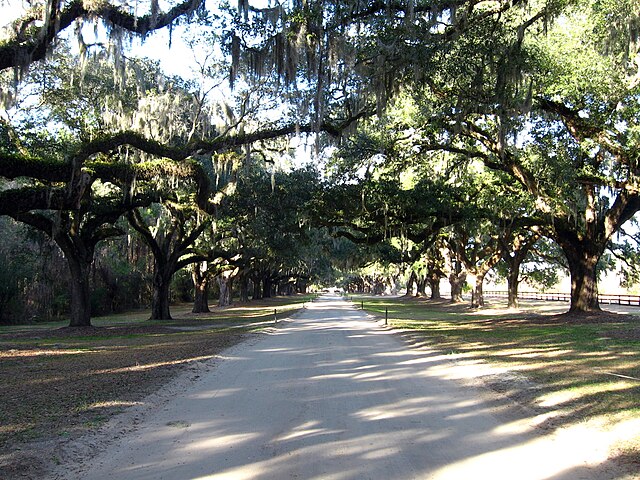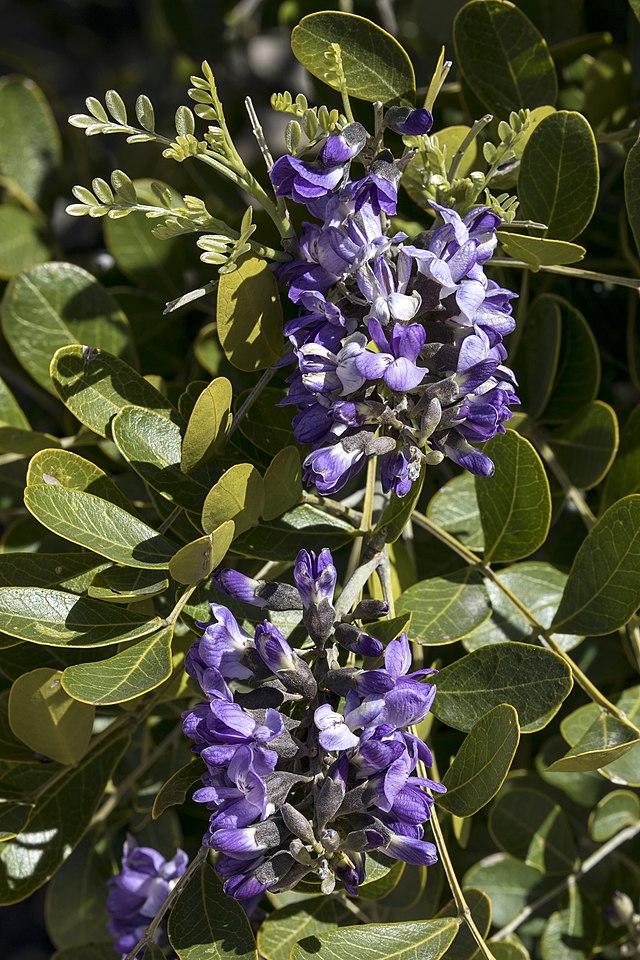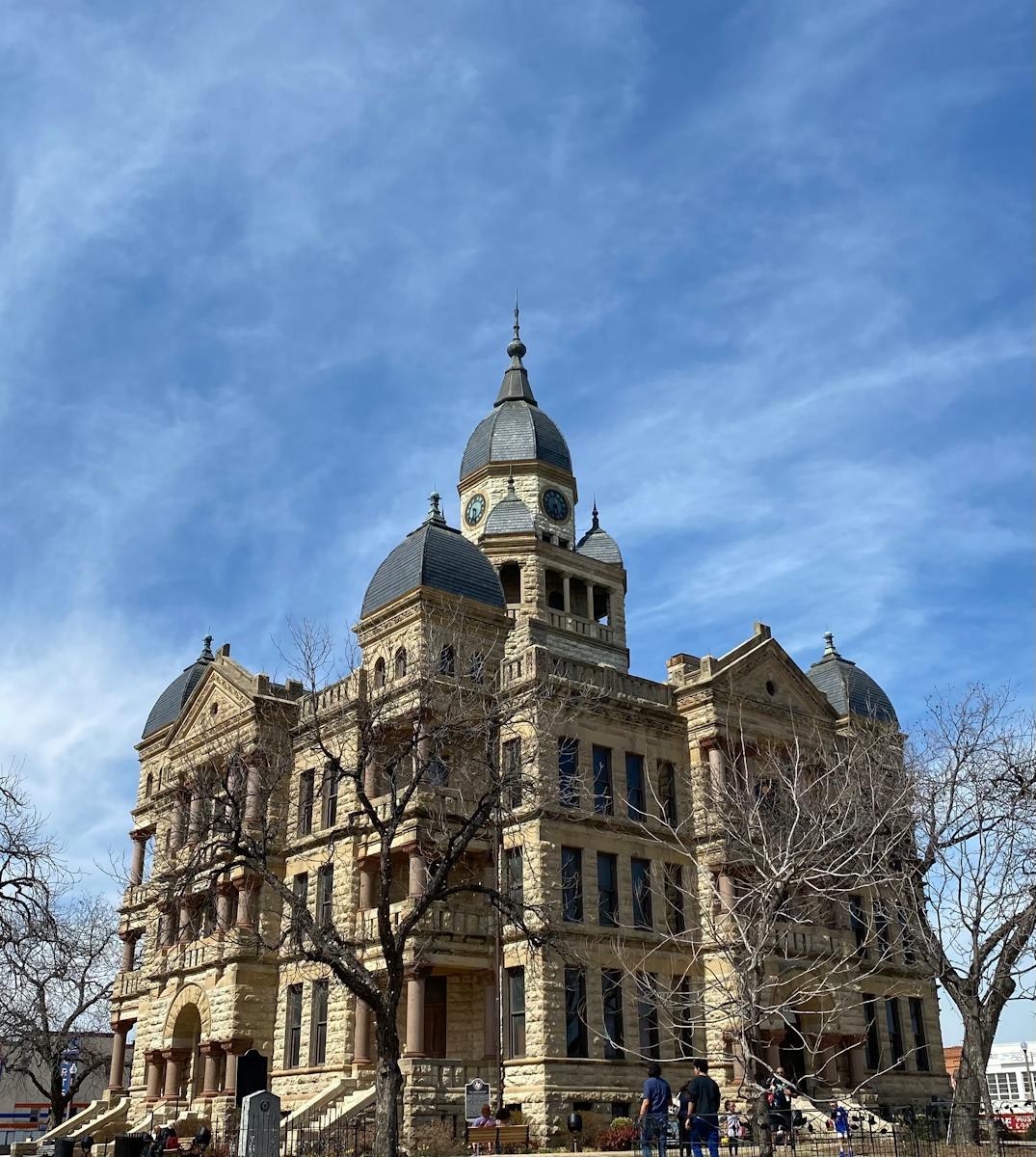Why Choose Native Plants?
Native Texas plants have evolved to thrive in the local climate. Great for handling heat and the other unpredictable Texas weather. If the area continues to have severe cold fronts such as those seen here in the last few years, the more resilient species of grass, bushes, and trees will prove their longevity.
Native plants provide essential habitat for local wildlife. By choosing these plants, you create a haven for pollinators, birds, and beneficial insects, which play a crucial role in the health of your garden and the broader ecosystem. A diverse ecosystem of fauna and flora is much better for the environment than one mono-cropped species of grass.
Native plants use less water and will require more infrequent analysis and servicing than more exotic species.
Where to Start:
This is a great resource for learning about the ecoregion that you live in near Denton. https://www.npsot.org/resources/native-plants/native-plants-database/
Start by navigating to the North Central Texas Map which will open a PDF for you to see a listing of all the native species to choose from.
It may be helpful to find an expert who can provide you with soil analysis. By understanding your backyard’s soil composition, you’ll be able to make informed decisions. Native plants will generally tolerate a wide range of soil types, but each species still does have preferences. Mimic nature by layering trees, shrubs, perennials, and groundcovers.
Incorporate a variety of plants that bloom at different times of the year to ensure year-round color and interest in your garden. This will also provide ongoing support for wildlife. Grouping plants by watering needs helps to manage workflow and irrigation more simply. This is a common technique in gardening as well.
Some Starting Points for your Landscaping Plan
There are different types of plants. Here are a few examples of native species from The Native Plant Society of Texas. Plants are grouped into type for your ease.
Trees:

Live Oak (Quercus virginiana):
- A stately tree with a broad canopy, perfect for providing shade.
- Extremely drought-tolerant once established.
Texas Redbud (Cercis canadensis var. texensis):
- Showcases stunning pink blossoms in early spring.
- Adapts well to different soil types, requiring minimal care.
Pecan (Carya illinoinensis):
- Texas’s state tree; it offers not only shade but also delicious nuts.
- Requires more water than other native trees but is a valuable addition to larger landscapes.
Shrubs:

Texas Mountain Laurel (Sophora secundiflora):
- An evergreen shrub with fragrant purple flowers and glossy leaves.
- Extremely drought-tolerant and deer-resistant.
Flame Acanthus (Anisacanthus quadrifidus var. wrightii):
- This shrub has tubular red or orange flowers that attract hummingbirds.
- Thrives in heat and is tolerant of poor soils.
Perennials:
Black-Eyed Susan (Rudbeckia hirta):
- Features bright yellow petals with a dark brown center; blooms in summer.
- Attracts butterflies and is excellent for cut flower arrangements.
Purple Coneflower (Echinacea purpurea):
- Known for its purple-pink flowers that attract pollinators.
- Drought-tolerant and thrives in full sun.
Groundcovers:
Horseherb (Calyptocarpus vialis):
- A fast-spreading groundcover that can tolerate light foot traffic.
- Small yellow flowers add a sprinkle of color throughout the growing season.
Stonecrop (Sedum spp.):
- Succulent leaves with star-shaped flowers.
- Ideal for rock gardens and dry, sunny spots.
Grasses:
Buffalograss (Bouteloua dactyloides):
- A turf alternative that requires minimal mowing and watering.
- Provides a dense, durable ground cover.
Pink Muhly Grass (Muhlenbergia capillaris):
- Known for its fluffy pink plumes that add a feathery texture to the landscape.
- Very drought-tolerant once established.

